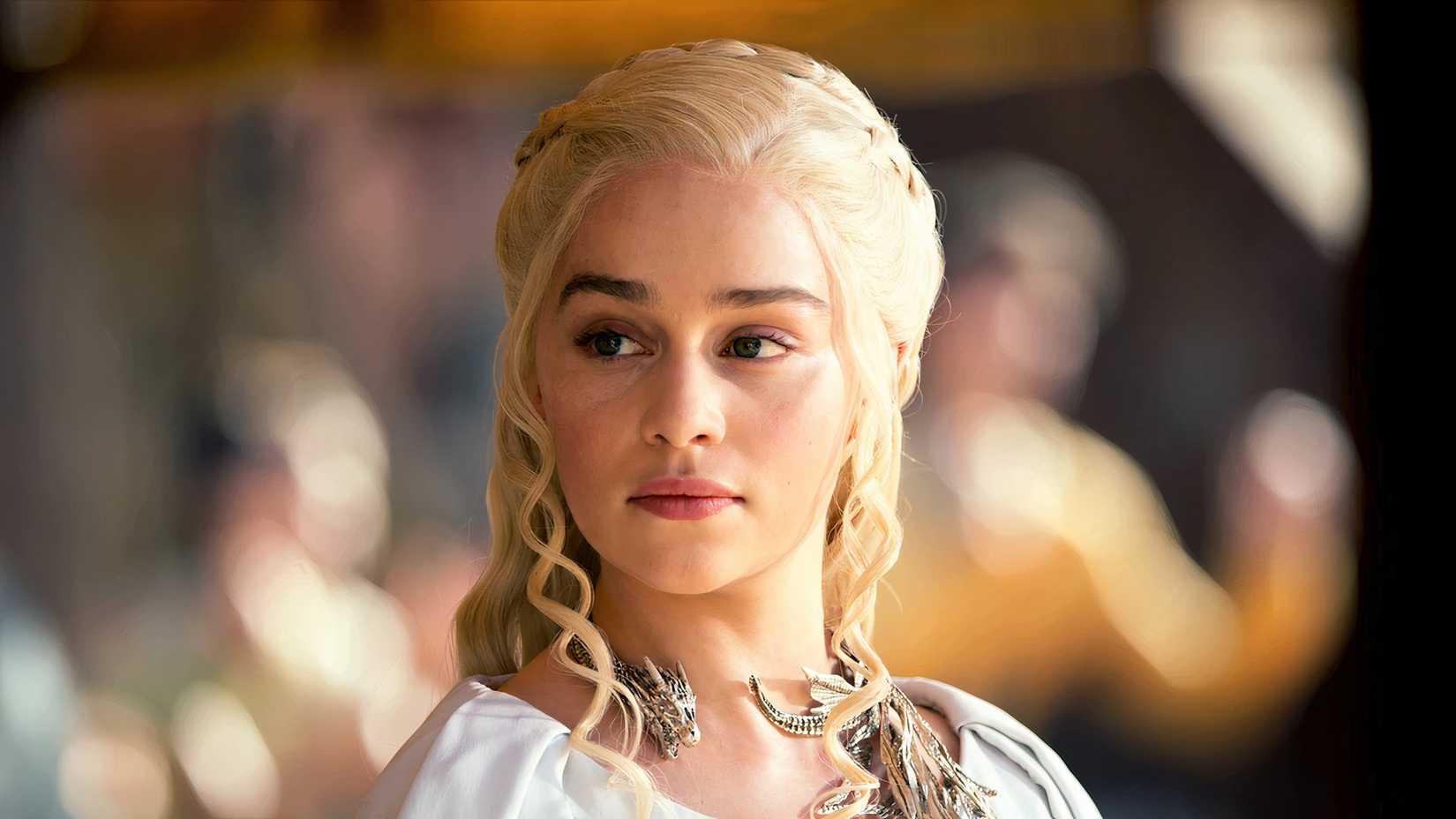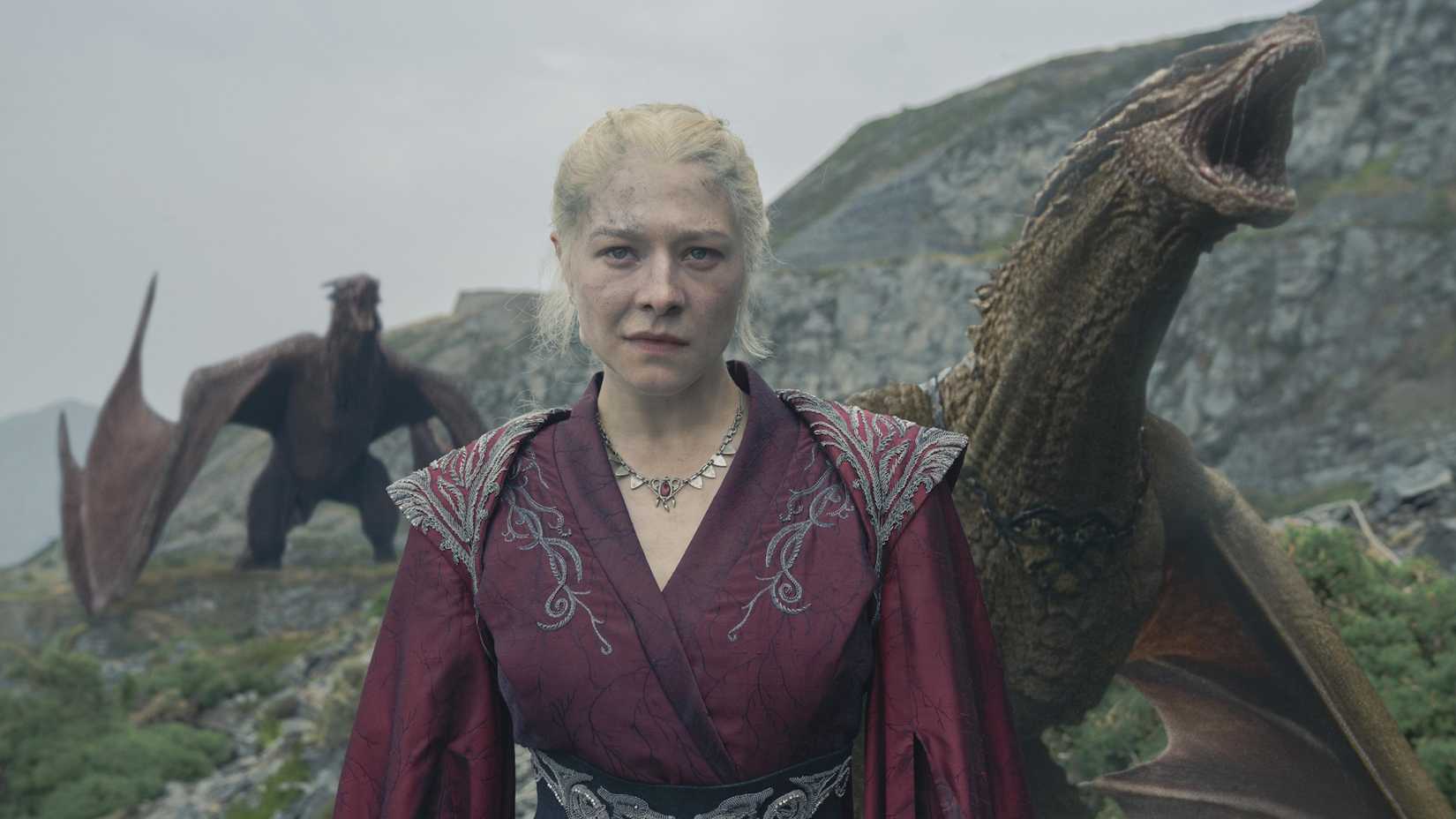Daenerys Targaryen’s Game of Thrones twist is one of the most infamous moments in television history, but we’ve drastically misunderstood what went wrong. Everyone has an opinion on the downfall of Game of Thrones Season 8, and while there are numerous issues with the closing seasons, HBO’s adaptation went awry with critical details early on.
Game of Thrones’ shortcoming wasn’t a last-minute failure; it was the result of narrative problems dating much further back. Let me be clear, this isn’t an article trying to defend Season 8; it’s a retrospective assessment on the mischaracterization of its criticisms and how both audiences and the show’s creators are making the same mistake on House of the Dragon. Let’s dive into what went wrong with Daenerys Targaryen, Bran Stark, and the themes surrounding the Iron Throne.
What Daenerys Targaryen’s Actual Role In ‘Game of Thrones’ Is
First, it’s worth diving into the disappointment surrounding Season 8, with Bran becoming king when audiences had hoped for either Jon or Daenerys to fill that role, and the general belief that Dany’s turn to madness was an unfounded betrayal of her character. One thing should be clear in this series: neither Jon nor Daenerys was ever meant to rule Westeros.
The Targaryens fill a very specific role in George R.R. Martin’s books and Game of Thrones. They’re a long-standing dynasty, plagued with a fluctuating quality of rulers who range from peaceful, noble monarchs like Jaehaerys I to some of the worst humans to touch Westeros, like Aegon IV. So, the Targaryens get ousted from the throne, and everything becomes fine and dandy? Of course not. Robert Baratheon takes the Iron Throne, and what ensues is the natural (tenuous) peacetime of a recently shifted social hierarchy. As soon as he dies, that peace flies out the window, and everyone thinks they deserve to be king. The problem here is that even though the Baratheons took the Iron Throne, this is still the same societal structure, simply rebranded.
The idea that “when a Targaryen is born, the gods flip a coin” to determine if they’re mad is prevalent throughout Game of Thrones, but it’s primarily a metaphor. Sure, incestuous breeding is bound to produce curious results, but if one examines real-world history, one could apply the coin-flip logic to practically every dynasty that has ever existed. Look at the Roman emperors who succeeded Augustus. The point of this line isn’t to say 50% of Targaryens are mystically bad; it’s to say that, with every new monarch, the die is cast, and they can either be progressive or regressive for society. This is the golden flaw of monarchical government and the concept of a genetically inherited right to rule. Simply put, George R.R. Martin knows monarchy is bad. A Targaryen restoration was never an option.
That leaves a massive question: why Bran? Since we know this was George R.R. Martin’s plan all along, let’s look at the clues. Bran bears a considerable resemblance to Brân the Blessed (Brân translates to raven/crow), a figure in real-world Welsh mythology who is a king of Britain, and whom scholars have often associated with the Fisher King of Arthurian legend. The Fisher King is an impotent ruler who has been dealt a fatal wound in his leg, but remains alive due to the power of the Holy Grail, which he must protect. If we extrapolate these evident influences and apply them to Game of Thrones, it’s clear that Bran Stark isn’t a monarch in the traditional sense.
Bran is an Arthurian king. He’s not a dynastic ruler; he’s the idealistic, figurative representation of leadership, defined by a sense of heroism, chivalry, and justness. This is the story George R.R. Martin wanted to tell. A Song of Ice & Fire is a fantasy book, after all, and this ending isn’t much different in theory than Aragorn’s coronation in The Lord of the Rings. They are both kings in the Arthurian sense, but the difference is that Bran, much like the Fisher King, is a product of trauma, which is far more befitting to Game of Thrones than, say, Jon Snow, who’s much more akin to the traditional King Arthur or Aragorn. In that sense, Jon Snow is a proper red herring.
‘Game of Thrones’ Lied To You About Daenerys Targaryen
With all that book analysis in mind, it’s easier to consider the idea of Bran Stark and what George R.R. Martin’s intentions for him were. The problem with Game of Thrones was the translation of these ideas, as the TV series favored Daenerys so heavily that audiences completely ignored the entirely negative foundation of her goals. I believe George R.R. Martin wrote Daenerys to be a sympathetic character whom audiences would love, but it’s essentially a trick. Readers are meant to fall for her charisma, like people in the real world would fall for the likability of a monarch. But the hints of developing sociopathy are always there, just beneath the surface.
Game of Thrones, particularly around Seasons 3 and 4, acknowledged how popular Daenerys had become in pop culture. A character written to be an aspiring tyrant was misconstrued as a feminist icon, and though some scenes suggested a degree of cruelty, they were always overshadowed by the greater evils she fought against. The clues for Dany’s madness were undoubtedly there; they were just contrasted by epic dragon-riding scenes and slave-freeing celebrations that painted her as a superhero. Given that HBO’s adaptation rapidly rose in prominence, it wouldn’t be surprising if they wanted to tap into those elements, allowing the dragon queen’s popularity to blaze the trail for unprecedented television success.
‘House of the Dragon’ Repeats the Same Mistake
Rhaenyra is the new Daenerys, and House of the Dragon fans are falling for the same mistake all over again. In Season 2’s penultimate episode, “The Red Sowing,” audiences watch Rhaenyra coldly stare at the fiery bloodbath she’s created, uncaring of the many lives lost in her effort to gain more dragonriders. It’s a clue; a brief glimpse at the version of Rhaenyra that George R.R. Martin wrote about in his books, which’s essentially been lost in translation as HBO tries to capitalize on the “Blacks” and “Greens” dynamic, where the vast majority of fans worship the ground Rhaenyra walks on.
I doubt audiences will care as much about Rhaenyra’s fate as they did with Daenerys; the problem I have is that House of the Dragon is once again falling victim to the trap of writers falling in love with characters and failing to be honest with them. It’s fine if HBO wants to favor Rhaenyra’s party, but they’re not heroes. It’s incumbent on the writers of these shows, especially when following a pre-planned blueprint, not to fall into the trap of developing characters to match the flow of audience desires.


